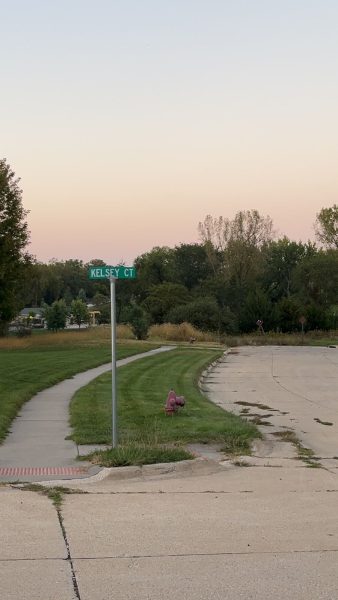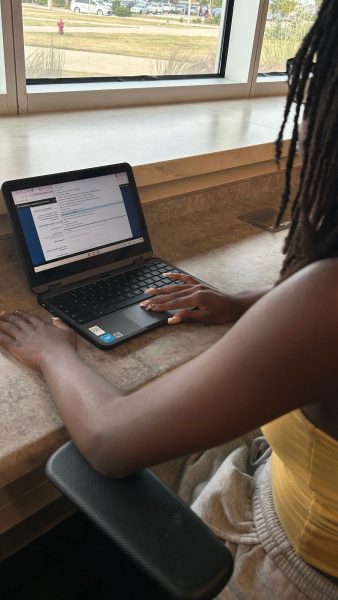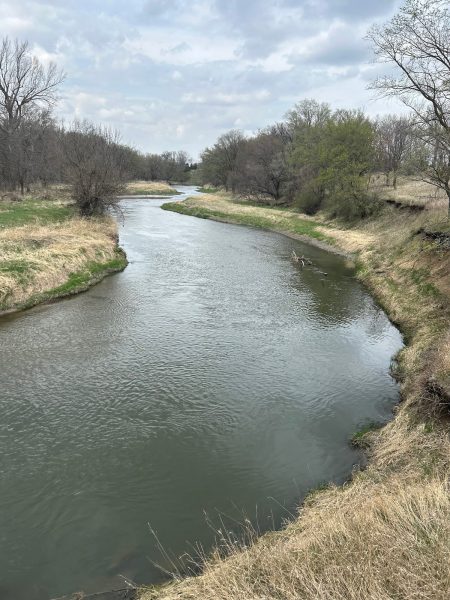The Death of Newspapers
Social media, among other things, is killing newspapers. What does that mean for the future?
public domain leisure CC BY 2.0
In 2005 the US had 8,891 newspapers. At the end of May there were only 6,377 according to US News.
Movies often depict the classic image of a father reading a giant newspaper at the breakfast table, drinking a coffee. To many young people, this image is dated, they don’t see it in their real lives. However, for previous generations this was an incredibly common practice.
“My mom used to read a physical newspaper every morning… now she doesn’t even have a newspaper subscription,” Raven Moore, a reporter for the Iowa City Press Citizen.
Young people consume news differently.
“I doubt many of my students are reading the news on the daily… using other platforms as sources of information is just more popular in the demographic,” said Brady Shutt, teacher.
In recent years, newspapers have become less and less popular. Two newspapers in the US die each week according to AP News. Many point to the internet as the issue. Not only has the internet provided people with ways to gather information about events, it also caused many newspapers to create an online platform and killed the physical newspaper.
“The internet caused many newspapers to go online, which makes them more accessible, and one day I think they will all be fully online. But, not all newspapers survived that [transition],” said Moore.
As people stopped reading physical newspapers, many newspapers were forced to end their print editions and go fully online. However, that creates an issue as well. Ad revenue is not enough for newspapers to function properly. This has caused many newspapers to die or switch to a subscription system.
The death of so many newspapers has created countless “news deserts”, areas with no local news sources. An estimated 70 million Americans live in a county with no local news or with only one source.
This is a massive issue, deeply tied to the issue of misinformation. People do not have access to reliable local news sources and many do not trust the national sources.
“A lot of people don’t trust the news. It’s easy to say ‘don’t trust the news and mainstream media’ and if that resonates with someone that could push them away from sources we might consider neutral and scholarly,” reflected Shutt.
However, the public is not left wholly in the dark. Many have turned to social media as their form of news, intentionally or unintentionally.
However, social media’s purpose is not to provide accurate information. In fact, in many ways, it is made to do the opposite. Social media is built to capture and hold the attention of a viewer. The accuracy of what is depicted is not a priority. This setup is very dangerous.
“Everyone has an opinion that can be shared openly…It’s so much easier to spew mistruths because everyone has a voice,” said Moore.
This can make discerning fact from fiction very difficult.
“People don’t have sources of information in their life that they are consuming on a more regular basis to [help them discern the truth].They start to live in that sphere that often doesn’t reflect reality, echo chambers,” said Shutt.
This has become even more dangerous than people initially predicted. For many people, the January 6th insurrection was a prime example of how misinformation is affecting the public.
“What we now know about the insurrection and what was motivating the people who were a part of it shows that adults are no better at discerning fact from fiction that high school students,” said Shutt.
However, without other sources of information, there are not many ways for people to get information. Most of the national newspaper publications require a subscription that many people are not willing to pay. This leaves people without another option. However, both Shutt and Moore, believe there is still hope for newspapers.
“There’s a lot of commitment that goes into newspapers… newspapers are a bit more sustainable than social media platforms… everything will probably end up online but I believe newspapers will survive,” reflected Moore.
However, it is up to the public to decide. Can they support newspapers for the sake of misinformation?

Leela is a senior at Liberty High School. This is her second year on the Live Wire staff. At Liberty, Leela plays tennis and is part of SEA club. Outside...








